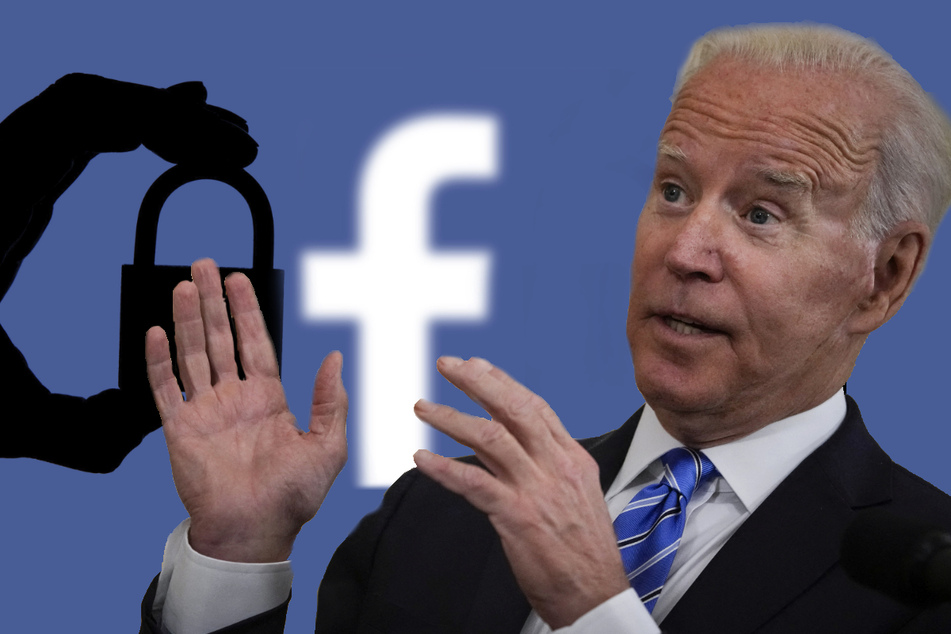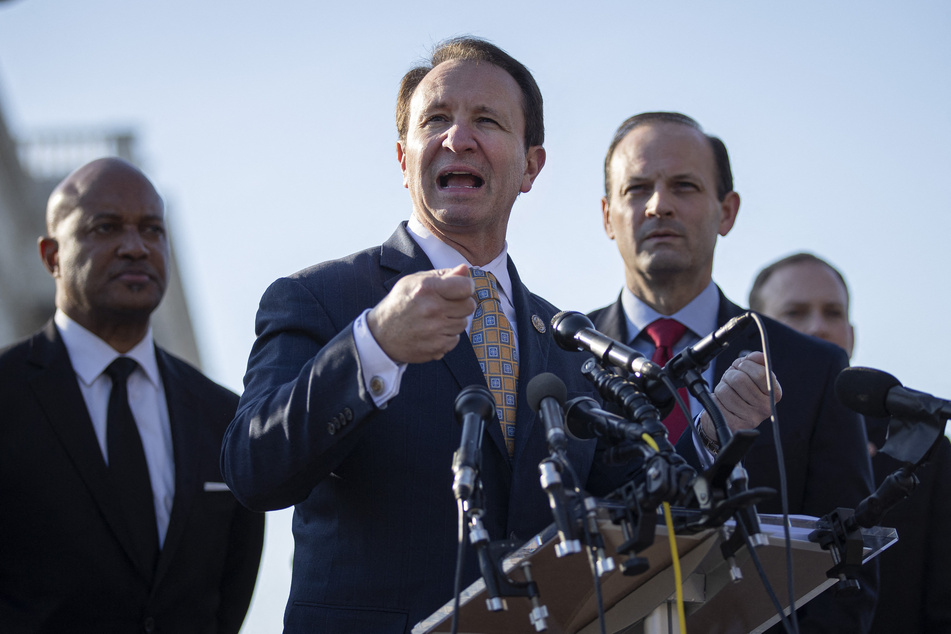Biden administration suffers blow in ruling on communication with social media companies
Monroe, Louisiana - A US federal court on Tuesday restricted some of the Biden administration's top officials and agencies from meeting and communicating with social media companies to moderate their content.

The injunction was in response to a lawsuit brought by the Republican attorneys general of Louisiana and Missouri, who alleged that government officials went too far in their efforts to get platforms to combat vaccine and election misinformation.
The ruling by the Trump-appointed Judge Terry A. Doughty – who previously struck down one of Joe Biden's vaccine mandates – marks a win for conservative advocates in the US who allege that the government has pressured or colluded with social media platforms such as Facebook and Twitter to censor right-leaning content under the guise of fighting misinformation.
The order applies to a slew of top law enforcement agencies such as the Federal Bureau of Investigation, the State Department, Justice Department, as well as health agencies including the Centers for Disease Control and Prevention.
It also applies to several prominent officials such as White House Press Secretary Karine Jean-Pierre and Alejandro Mayorkas, secretary of the Department of Homeland Security.
The decision restricts agencies and officials from meeting with social media companies or flagging posts for "the purpose of urging, encouraging, pressuring, or inducing in any manner the removal, deletion, suppression, or reduction of content containing protected free speech" under the First Amendment.
Conservatives celebrate legal win over Biden administration

Louisiana Attorney General Jeff Landry hailed the "historic injunction" that he said will prevent the Biden administration from "censoring the core political speech of ordinary Americans" on social media.
In a statement, he accused senior federal officials of seeking to "dictate what Americans can and cannot say on Facebook, Twitter, YouTube, and other platforms about Covid-19, elections, criticism of the government, and more."
The order could seriously limit top government agencies from notifying the platforms about false or hateful content that can lead to harmful consequences.
But the ruling said that the government could still inform them about posts involving criminal activity, national security threats, and foreign attempts to influence elections.
A White House official said the Justice Department was reviewing the court's injunction and will evaluate its options.
"This administration has promoted responsible actions to protect public health, safety, and security when confronted by challenges like a deadly pandemic and foreign attacks on our elections," the official said.
"Our consistent view remains that social media platforms have a critical responsibility to take account of the effects their platforms are having on the American people, but make independent choices about the information they present."
Ruling criticized as "too broad"
In addition to communications with social media companies, the ruling also restricted the agencies and officials from "collaborating, coordinating, partnering" with key academic groups including the Election Integrity Partnership, a coalition of research institutions that tackle election-related falsehoods.
Some experts in misinformation and First Amendment law criticized the ruling, saying authorities needed to strike a balance between calling out falsehoods and veering towards censorship or curbing free speech.
"This case raises the difficult but also vitally important question of when the First Amendment restricts the government from trying to persuade, encourage, or 'jawbone' private actors into suppressing speech," said Jameel Jaffer, director of the Knight First Amendment Institute at Columbia University.
"This said, the court's order in this case is certainly too broad. It would insulate the platforms not just from coercion but from criticism as well."
Cover photo: Collage: Drew Angerer / GETTY IMAGES NORTH AMERICA / Getty Images via AFP & 123RF/inkdrop

